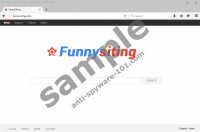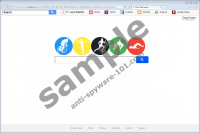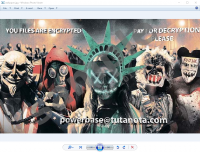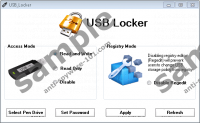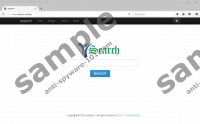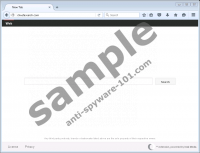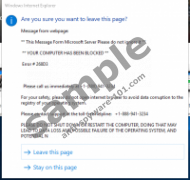If you see a Norton Security Scan message on your screen, but you do not have Norton Security on your computer, it is very likely that you have been infected by a malicious program that displays fake security notifications. Fake Norton Security Scan Tech Support Scam was first reported in July this year, and this annoying program still terrorizes users around the globe. The best way to get rid of this infection would be investing in a licensed antispyware tool. It is very likely that this message is displayed by a Trojan, and it is not recommended to attempt removing a Trojan on your own if you are not an experienced computer user. Read more »
Funnysiting.com
We can assure you that you have a browser hijacker installed on your computer if you see Funnysiting.com in the place of your default search engine when you open your browser. Specialists have managed to find out that the Funnysiting.com browser hijacker is targeted at users whose default browsers are Mozilla Firefox or Google Chrome; however, there is a small possibility that you might notice that the settings of your Internet Explorer have been changed too. Either way, you should hurry to get rid of Funnysiting.com despite the fact that it looks like an ordinary search engine. It will not be easy to remove the browser hijacker that belongs to the Elex family, especially when they have started using .bat files to open particular websites they promote. Of course, you will find more detailed information about the deletion of this browser hijacker here, so, we hope, it will be clearer for you what you need to do to erase this threat after reading the article. Read more »
Search.emailfaster.co
Our security experts say Search.emailfaster.co is a browser hijacker, and as such, it can expose you to severe computer security threats if you do not take this danger seriously. The problem with browser hijacker is that they often look like a genuine search engine, and sometimes users cannot tell whether the domain set as their default homepage is reliable or not. We can assure you; however, that Search.emailfaster.co is not your new best friend. You have to remove this program from your computer along with everything associated with it because there might be a lot more unwanted programs on-board than you think. Read more »
Purge Ransomware
Purge Ransomware is a threat that encrypts user’s private data after opening an infected file, which could be downloaded from malicious file-sharing web pages or Spam emails. The ones who created the malware demand their victims to contact them via powerbase@tutanota.com email address and pay the ransom in seven days. The ransom note even says that the more you wait, “the higher the payment gets.” By saying so, the cyber criminals are probably trying to scare users into paying the money. However, we advise you not to give in to this pressure. The best course of action is to read the article and learn more about the malware before deciding what to do. On the other hand, if paying the ransom is not an option to you, we advise you to erase the threat with the removal instructions below the text. Read more »
USB Locker
USB Locker is a strange application that our research team at Anti-Spyware-101.com recognizes as a potentially unwanted program, o PUP. According to our research, an official website that would represent this program does not exist, which is a bad sign. Legitimate and authentic programs usually rely on their official websites for representation. Because the PUP is not represented, we cannot review the privacy policies and other legal information associated with it. Even illegal, malicious programs might have misleading sites representing them, and so the inexistence of a representative site is truly worrying. On top of that, this poses a serious question regarding the distribution of the program. We have tested this PUP in our internal lab, and we can answer all of your questions regarding it. The most important of these questions, of course, is how to remove USB Locker, and we talk about this in the report as well. If you want to discuss further anything mentioned in this report, you can start a discussion in the comments area below. Read more »
Asearch.online
Asearch.online is a troublesome browser hijacker that might not only replace your default homepage but also redirect you to fake technical support web pages. Such sites might warn users about computer problems that do not exist and suggest them to contact technical support with +1-(888)941-3234 telephone number. If you noticed such notifications, you should know that this is only a scam. Our researchers at Anti-spyware-101.com are almost one hundred percent sure that such pop-ups show up because of Asearch.online. To make matters worse, the search engine could also display potentially harmful content that may belong to its third-party partners. Therefore, we would advise you not to take any chances with the browser hijacker and remove it immediately. Just, slide below the text and you will find manual instructions that will guide you through the process. Read more »
Smrss32 Ransomware
Smrss32 Ransomware is a dangerous ransomware infection that seems to be all over the place. It encrypts a whooping 6,674 file types, so one would think that with this infection on-board, the affected computer could be rendered inoperable. However, the program still leaves the basic system files because it still needs to extort your money out of you, right? Before that happens, you have to close all the notifications delivered by this infection, and then look for other potential intruders. Malicious programs seldom travel on their own, so you have to do everything in your power to protect your system from a severe infection that never ends. Read more »
Cheetasearch.com
Cheetasearch.com – also known as search.cheetasearch.com – is a browser hijacker that can take over your browsers. According to the research conducted by Anti-Spyware-101.com analysts, this hijacker is most likely to be linked to an extension that has not been developed yet. Even at the bottom of the hijacker’s home page, you can see a tag that says “extension, powered by Imali Media,” and this is why we assume that this hijacker has not been fully developed yet. The bad news is that we cannot tell you which browser extension will be used to introduce users to this hijacker. Luckily, we have analyzed quite a few hijackers from the Imali Media family, and we can give you a quick rundown on how this software works and why trusting it is a bad idea. Overall, we recommend removing Cheetasearch.com from your browsers as soon as possible, and you can learn all about this process using the report. Read more »
**Your Computer has been blocked** +1-(888)941-3234
The **Your Computer has been blocked** +1-(888)941-3234 notification will pop into your screen when you expect it the least. In our case, this fake alert is generated by a browser hijacker, but it is very likely that it could be used by other unwanted programs, too. Although there is no particular way to get rid of just this fake alert alone, you can seriously stop **Your Computer has been blocked** +1-(888)941-3234 from appearing by resetting your browser settings and by deleting all the potentially harmful programs that are installed on your PC. These annoying nuisances might not seem dangerous, but they could seriously damage your system if you do nothing about it. Read more »
Korean Ransomware
Malware researchers at Anti-spyware-101.com have tested a new ransomware called Korean Ransomware and say that you have to remove it before it becomes fully operational. At the time of this article, it did not encrypt any files, probably because it was still in development. Nevertheless, there are many things to discuss this ransomware. Once this ransomware is fully operational and if it infects your computer, then it will encrypt some of your files and demand that you pay a ransom for the decryption key. In short, the people behind it want to extort money from you, and there is no way of telling whether they will send you the promised decryption key. Read more »
